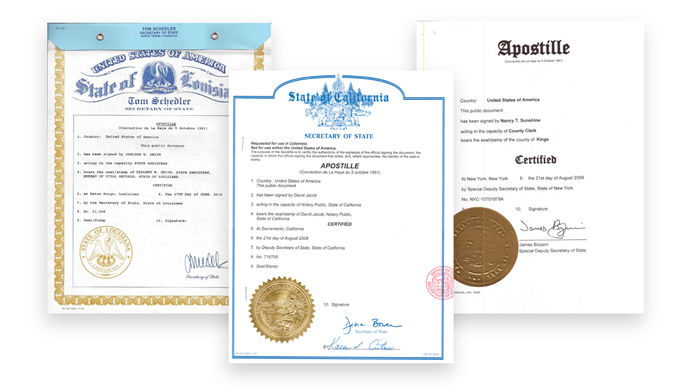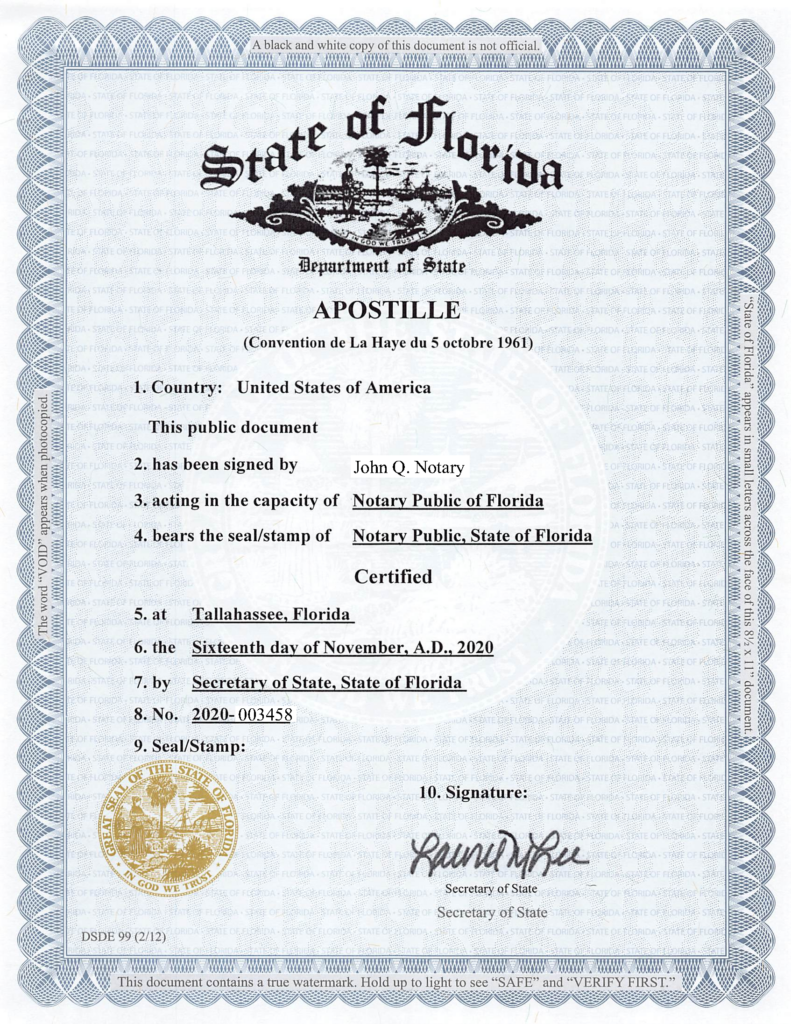Relied On Apostille Services in Houston, Texas - Quick Turnaround
Relied On Apostille Services in Houston, Texas - Quick Turnaround
Blog Article
Looking Into the Reasons Behind the Necessary Need of Apostille Qualification for Legal Papers
In the world of lawful documentation, the mandatory need of apostille qualification has ended up being an important element that significantly impacts the legitimacy and acknowledgment of legal papers on a worldwide range. Recognizing the reasoning behind this need entails diving right into the detailed internet of lawful complexities, historic criteria, and global agreements that underscore the value of apostille certification in today's interconnected globe. By exploring the underlying factors behind this widespread demand, a more clear image emerges of why this apparently bureaucratic procedure holds such tremendous value for individuals, organizations, and federal governments alike.
Historical Evolution of Apostille Qualification
How did the principle of apostille accreditation develop with time to come to be an important part of worldwide record validation? The historic development of apostille qualification go back to the very early 20th century. The demand for a streamlined method of validating documents for usage throughout borders came to be obvious as global trade and traveling boosted. In reaction to this requirement, the Hague Meeting on Exclusive International Legislation presented the Apostille Convention in 1961. This worldwide treaty developed a streamlined procedure for licensing the authenticity of documents to be identified in participant countries.
Originally adopted by a few European countries, the Apostille Convention gradually obtained worldwide acceptance as a result of its effectiveness and efficiency in confirming the legitimacy of main documents. For many years, the convention's reach broadened as more nations signed up with, acknowledging the apostille as an universally approved kind of paper verification. Today, apostille certification has come to be a conventional requirement for confirming legal documents in worldwide purchases, making certain smooth interaction and legal proceedings in between countries.
Simplifying International Paper Legalization
The streamlining of international paper legalization treatments has actually dramatically enhanced performance in cross-border purchases. Streamlining the process of legislating files for worldwide use has actually ended up being essential in helping with swift and seamless deals in between nations. One of the essential systems that have added to this simplification is the fostering of the Apostille Convention, which offers a standard technique for confirming the credibility of files across getting involved nations.
By adhering to the Apostille requirements, countries concur to recognize each other's public files as legitimate without the need for further legalization. This removes the prolonged and usually troublesome procedure of multiple verifications by various authorities, saving time and sources for companies and individuals participated in international activities.

Making Certain Paper Authenticity and Legitimacy
To make sure the authenticity and credibility of legal documents in worldwide deals, rigorous verification processes are crucial - Houston Apostille. Legal documents play an important function in cross-border transactions, and ensuring their authenticity is vital to support the honesty of such transactions. By requiring apostille qualification for legal documents, authorities intend to authenticate the origin of records and validate the trademarks of people involved. This process assists prevent fraud, misstatement, and other negligences that could threaten global contracts or lawful procedures.
Additionally, confirming the credibility of lawful documents with apostille accreditation boosts trust fund and confidence among celebrations involving in worldwide deals. Inevitably, by promoting rigorous verification standards, apostille certification contributes to an extra Extra resources transparent and secure global lawful framework.

Helping With Cross-Border Legal Acknowledgment
In the realm of international deals, the apostille qualification not only makes sure the credibility and credibility of lawful papers however additionally plays a critical role in facilitating cross-border lawful recognition (Houston Apostille). When legal papers bear an apostille certificate, they are readily approved by foreign authorities without the need for additional verification. This structured process accelerates the recognition of documents in various nations, promoting efficiency and decreasing bureaucratic obstacles in lawful issues that transcend national borders
Promoting cross-border lawful acknowledgment through apostille qualification cultivates count on and confidence in the authenticity of files exchanged in between nations. This acknowledgment is particularly important in situations such as international service purchases, adoption procedures, or legal process including celebrations from different jurisdictions. By sticking to the criteria set forth by the Apostille Convention, nations accept honor the apostille seals affixed to records from various other member nations, therefore streamlining the procedure of lawful acknowledgment across borders. Ultimately, the apostille accreditation functions as an essential tool in advertising smooth worldwide lawful cooperation and ensuring the smooth operation of cross-border purchases.
Conformity With International Treaty Criteria
Conformity with international treaty requirements is crucial for guaranteeing the uniform application of lawful regulations throughout participating countries. The Apostille Convention, developed in 1961, describes the demands for the approval of public files among participant nations.
The Apostille accreditation, as mandated by the treaty, acts as a warranty of credibility for papers such as birth certifications, marital relationship licenses, court judgments, and notarized actions. This standard strategy assists stop fraudulence and ensures that lawful papers originating from one participant nation are easily accepted in another. By conforming with worldwide treaty standards, countries show their commitment to supporting the concepts of transparency, depend on, and collaboration in lawful matters on a global range.
Conclusion

In the realm of lawful documentation, the necessary requirement of apostille accreditation has ended up being an essential aspect that significantly impacts the legitimacy and acknowledgment of legal papers on a worldwide range. Today, apostille qualification has actually ended up being a standard requirement for validating legal documents in international transactions, making certain smooth communication her response and legal procedures between nations.
Moreover, validating the authenticity of lawful files through apostille accreditation site link enhances count on and self-confidence amongst events engaging in global deals.In the realm of international purchases, the apostille qualification not only guarantees the credibility and credibility of lawful papers yet likewise plays a pivotal duty in assisting in cross-border legal recognition. By adhering to the criteria established forth by the Apostille Convention, nations concur to recognize the apostille seals affixed to records from various other participant nations, thus streamlining the process of lawful acknowledgment across boundaries.
Report this page